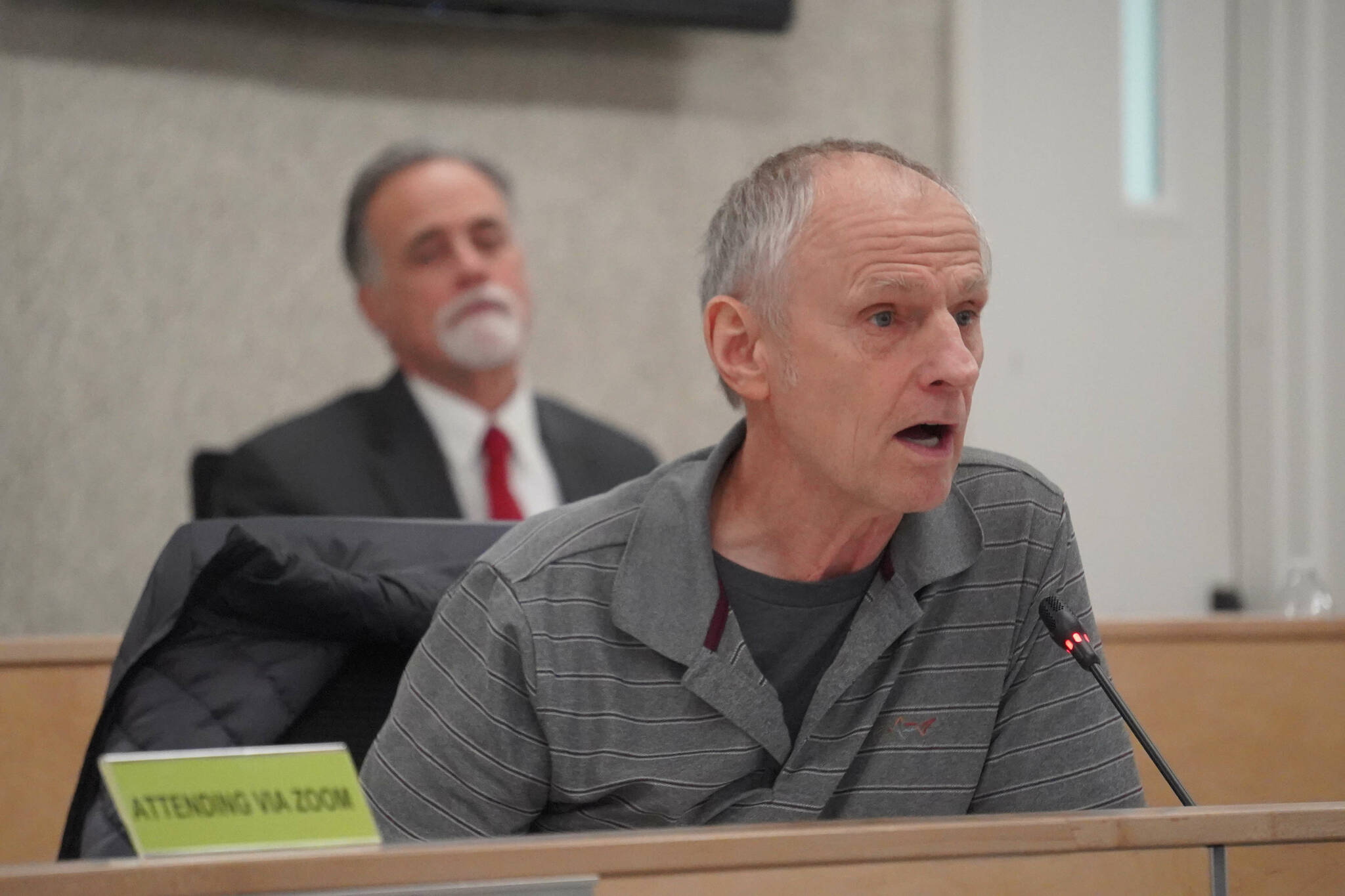The Kenai Peninsula Borough Assembly on Tuesday unanimously killed an ordinance that proposed to cut one of two opportunities for open public comment during its meetings.
The ordinance was sponsored by Assembly President Peter Ribbens and introduced by unanimous consent in the group’s consent agenda on Dec. 3. It describes an increase in time allotted for “public comments on items not appearing on the agenda” from 20 minutes to 30 minutes and elimination of “public comments and public presentations” from the agenda.
The text of the ordinance says “the public has numerous opportunities to engage with assembly members,” directing instead to email comments or social media in addition to remaining opportunities to comment on the consent agenda, action items, or the remaining opportunity for public comment on items that aren’t on the agenda.
Opposition was brought forward by several last month when the ordinance was introduced, and by even more people during the assembly’s Tuesday meeting.
David Haeg said Tuesday that “nothing, absolutely nothing” compares to in-person public testimony to the assembly. Other options for comment like email or even by telephone through Zoom aren’t as effective.
“Our being able to talk to you is very precious,” he said.
Patricia Bouton said that emails can’t replace public testimony. She said that she sent an email recently to each member of the assembly and doesn’t know for certain whether each member saw it or even received it. Some members said during the meeting that they hadn’t.
It’s only during in-person public testimony, she said, that she knows for certain that her words are reaching the assembly and that they’re listening.
Alex Koplin said that democracy works when people speak up. Jeanne Reveal said that maintaining multiple opportunities for public comment is important for maintaining open communication.
Ed Oberts took aim at the justification described in the ordinance, which reads that the changes “aim to continue to provide a transparent assembly meeting agenda, eliminates redundancies, and ensures the people’s business is conducted in an efficient and effective manner.”
Legislative bodies, Oberts said, “were never designed to be efficient.”
“We as individuals in our community should have the right, maybe even the responsibility, to come give you our opinion,” he said.
The assembly unanimously voted against the ordinance, after a failed motion by member James Baisden to table it.
Assembly Vice President Kelly Cooper said that there were elements of the ordinance that she would like to see enacted — specifically that which would clean up “confusing” language that says the second public comment opportunity is for “public presentations” as well as “public comment.”
She said she considered an amendment to maintain some of those valuable changes but that they were “too different from this original ordinance.”
Member Tyson Cox said that he wasn’t supportive of the ordinance, because “listening to these folks, I do agree with them.” He said that he agreed that the second period was a time to respond to assembly business, to remain approachable, and that emails are an insufficient substitute for testimony. Similar sentiments were expressed by several members of the body.
A full recording of the meeting is available at kpb.legistar.com.
Reach reporter Jake Dye at jacob.dye@peninsulaclarion.com.

